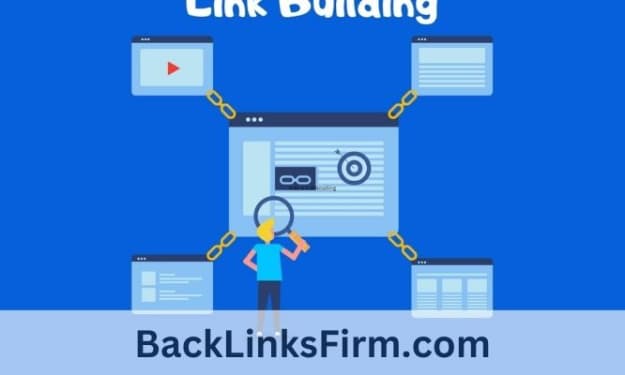8 Most Promising Blockchain Trends for 2022
Blockchain Trends

So many things have changed and saw a rise this 2022, and blockchain is one of them. As technology advances, more businesses across industries are leveraging blockchain technology. Its benefits are promising, as it allows information to be publicly shared, paving the way for smart contracts, encrypting data, improving security, and so on.
Because of its relevance, spending on blockchain solutions is expected to hit $11.7 billion in 2022. Between 2019 to 2025, its CAGR will go over 69%.
If you're wondering how else blockchain technology can disrupt the world, you came to the right place. Keep on reading to learn more about blockchain trends and how they will impact the world this year.
Blockchain Trends in 2022
New trends are constantly forming. Attributing to blockchain's rise is the increasing competition of coders. For instance, the prevalence of hackathons, such as the 4th Bitcoin SV Hackathon, has resulted in promising projects built on the technology. With this in mind, the following are some blockchain trends businesses should keep watch of.
1. Stablecoins
Stablecoins fight the volatility of cryptocurrencies. They fix their values according to fiat or traditional currency. Hence, a stablecoin is tied to the value of an asset that is usually constant. Stablecoins are comparable to the US dollar or gold. Unlike other cryptocurrencies, they are not independent. For instance, if its stability is linked to the US dollar, it is subject to the control of the US government.
Prevailing stablecoins include fiat-collateralized coins, crypto-collateralized coins, and algorithmic coins. Each stablecoin uses various collaterals to keep its steadiness. These collaterals may consist of the USD, Ethereum, or computer programs.
What makes stablecoins incredibly unique is how they can be transacted with smartphones. Moreover, coin holders that live in a country with rampant inflation can place their money in a stable currency. Unlike cash, cryptocurrency does not charge fees when exchanging bitcoin to tether (USDT) and USDT to stablecoins.
2. Data Marketplaces
As its name suggests, data marketplaces are online stores that facilitate data purchase. As many businesses seek to expand their internal data sets with external data, cloud-based data marketplaces are growing rapidly. This helps in efficiently corresponding data consumers with the right data sellers.
Typical information bought and sold in the marketplace includes research, business intelligence, public data, and firmographics.
As data volumes continue to increase and machine learning becomes more critical in decision-making, data marketplaces are helping companies reduce their efforts and costs. It allows easier data collection and helps information providers extend their market.
3. NFT
NFTs or non-fungible tokens use blockchain to imprint ownership into an asset. Blockchain-fueled NFT technology creates marketplaces from digital things such as 3D art, which you could not easily trade on typical markets.
Experts consider NFTs a revolutionary invention that could result in many emerging markets. Companies can combine it with subscriptions, the internet of things (IoT), metaverse, gaming, and other technologies to maximize its benefits.
4. Vaccine Distribution
Overcoming the COVID-19 pandemic is a priority for 2022. Blockchain technology can help in the tracking and distribution of vaccines. It provides proactive monitoring and can identify vaccine counterfeits, proving the authenticity of vaccine shipments.
Moreover, it ensures the integrity of supply chains by unifying the records of vaccination rates and reviewing its efficacy across platforms. It helps in quality control by storing vaccines at their correct temperature during transportation. Additionally, blockchain could even recognize where plenty of vaccine side effects are experienced.
5. Eco-friendly Blockchain
Blockchain uses a lot of energy. It creates high levels of carbon emissions since high-powered computers are involved. It entails the need to solve complex problems. Because of this, it runs on a lot of power.
According to an index compiled by the University of Cambridge, bitcoin mining alone is currently estimated to account for 0.5% of global electricity consumption. It consumes more power than Sweden does in a year.
Consequently, public opposition to bitcoin's adverse effects is getting stronger. This gives a lot of room for blockchain's improvement in being eco-friendly. There are several ways this can be achieved, including carbon offsetting. Another is by moving to less energy-intensive models of blockchain technology. This is especially relevant for those that rely on proof-of-stake algorithms to generate consensus.
If companies can take advantage of the increasing demand for sustainability and improve the energy consumption and efficiency of Bitcoin, they could garner more significant investments.
6. Businesses
Blockchain technology ensures the accessibility of selected information to ecosystem participants. It promotes transparency between industries and allows data to be shared in a single public system. With the technology, companies can automate what information is shared and to whom it is shared.
Businesses can better protect their data on their internal business processes from consumers, at the same time, share information about their manufacturing system.
7. Governments
Blockchains give governments a new efficient framework for organizing their processes and storing information. Governments have been experimenting with applying the technology. They integrate it with health care, food supply chains, identity management, land registrations, and procurement.
To further increase the reliability of blockchains in governments, the World Bank is even proposing a three-layer design and implementation framework. The model prevents potential glitches between the technology and its intended application.
8. Healthcare Innovations
Blockchain enables health practitioners to comprehensively learn about their patients' cases, improve the speed of diagnosis, and interpret how to evaluate their data into treatment. Blockchain supports a health-conscious culture by efficiently storing medical records and transferring these data from one professional to another. It decentralizes records and allows access to them when needed.
The Bottom Line
Blockchain is no longer only relevant to cryptocurrency. Applications based on blockchain are emerging to support many other scenarios that require decentralized data storage. Indeed, we are still in the early stages of blockchain development, and 2022 will see continued growth in the sector.
These movements will likely include more significant investment into blockchain technologies and the emergence of nuanced business models that leverage stablecoins, NFTs, data marketplaces, and eco-friendly blockchain.
About the Creator
Kimberly Maceda
Kimberly has been writing insightful content for a wide range of niches and platforms. She believes there’s a fine line between right and wrong, with the Oxford comma comfortably lying in the middle.






Comments
There are no comments for this story
Be the first to respond and start the conversation.